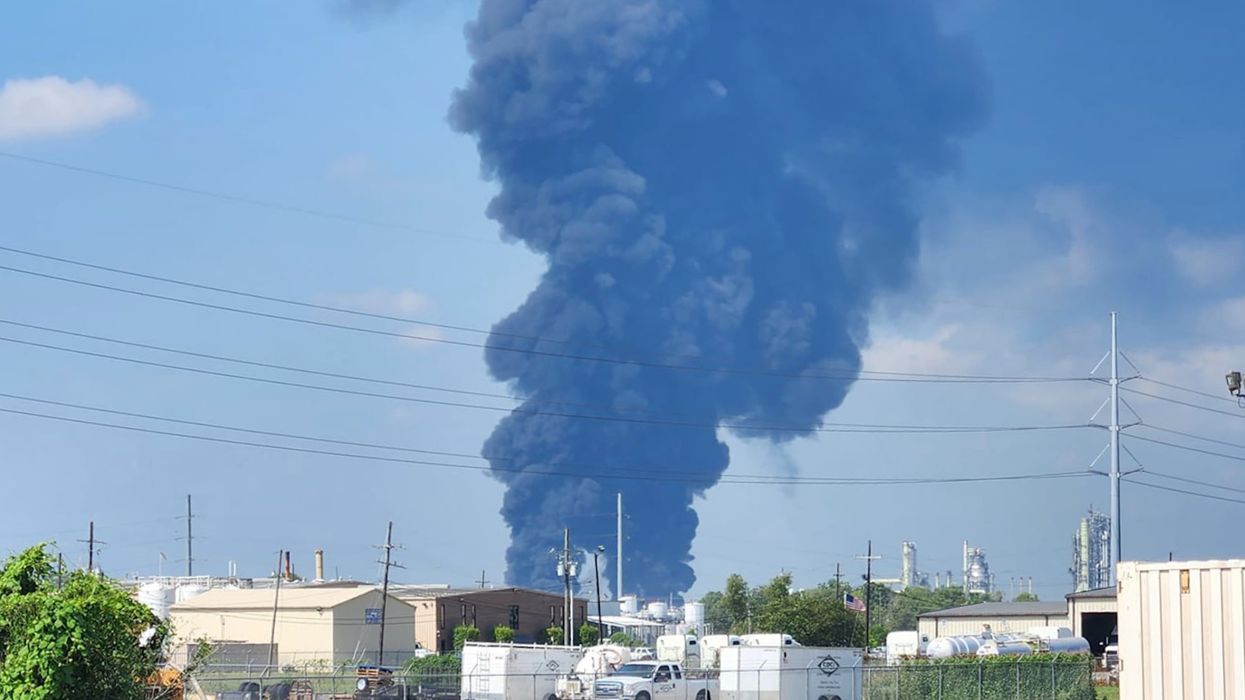Marathon Petroleum, the largest oil refinery company in the U.S. and a major spin-off of Marathon Oil Company, is among the defendants in one of the most prominent of those cases, City and County of Honolulu v. Sunoco et al. The city of Honolulu alleges that Big Oil engaged in a coordinated effort to "conceal and deny their own knowledge" of the impact of burning fossil fuels.
The company magazine, Marathon World, featured the 1977 article, titled "World Weather Watch." Summarizing the work of federal climate scientists, the unnamed author suggested that "industrial expansion during the last century may be affecting the weather through carbon dioxide pollution."
Observers of the fossil fuel industry on Wednesday indicated that the 1977 article fit with a larger pattern of Big Oil's early knowledge of climate change.
"I'm not surprised that Marathon would have documents that shed light on its awareness," Bryant Sewell, a research analyst at the corporate watchdog Majority Action, told The Guardian. "Whether it's Marathon, Exxon, or electric utilities, we have seen a longstanding strategy from these companies of climate denial, disinformation, and delay."
Timmons Roberts, a climate disinformation expert based at Brown University, reacted strongly to the article when The Guardian shared a copy with him.
"Pestilence, starvation, drought," he said. "To know one's product may bring that about, and bury the evidence, is unspeakable.”
The 1977 article was uncovered by Guardian contributor Geoff Dembicki, an investigative journalist and author of the 2022 book The Petroleum Papers: Inside the Far-Right Conspiracy to Cover Up Climate Change. Dembicki told Common Dreams that he found the article in an archive and it's not available online.
The Marathon article quotes J. Murray Mitchell, a leading climatologist at the National Oceanic and Atmospheric Administration who warned in the 1970s that carbon dioxide levels could threaten the polar ice caps and have devastating consequences for humankind, as well as other climate experts. However, it also puts forth other possible causes for changes in climate and weather patterns which have since been debunked, according to Dembicki.
Marathon Petroleum, which is in the process of merging with rival ConocoPhillips, hasn't received as much scrutiny for its historical role in climate denialism as Exxon and Shell, two companies that, as Dembicki put it, "privately studied catastrophic climate risks starting in the 1970s and then led public relations and advertising campaigns to undermine the science."
Yet the company, which owns 13 oil refineries and more than 6,000 gas stations in the U.S. and had a net income of nearly $10 billion in 2023, has received scrutiny for more recent events. It was the subject of a 2019-2020 Congressional investigation into a covert industry effort to push the Trump administration to roll back vehicle efficiency standards, following a New York Timesexposé. A group of senators, including Sheldon Whitehouse (D-R.I.), called Marathon "one of the most anti-climate companies" in an open letter at the time.
Whitehouse is among the lawmakers pushing the Department of Justice to investigate Big Oil disinformation, which could potentially lead to a federal lawsuit akin to the one previously brought against Big Tobacco. Dozens of cities and states, including Honolulu, have already filed such suits.
The lawsuits face bitter opposition from Big Oil. Industry interests have mounted an unusually public campaign to get the U.S. Supreme Court to dismiss the Honolulu case, which could be the first climate lawsuit against Big Oil to reach a jury trial.
The majority of Americans support legal accountability for Big Oil for its role in creating the climate crisis, a Data for Progress poll from May showed. Roughly half of Americans even support criminal charges, which have not yet been pursued anywhere in the world, though a case file has been opened in France.



